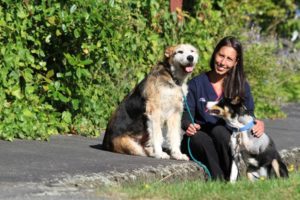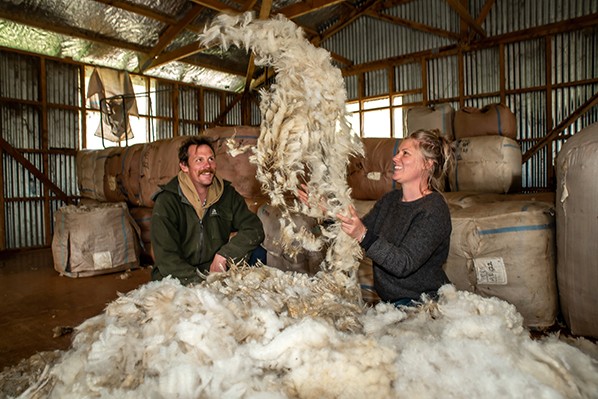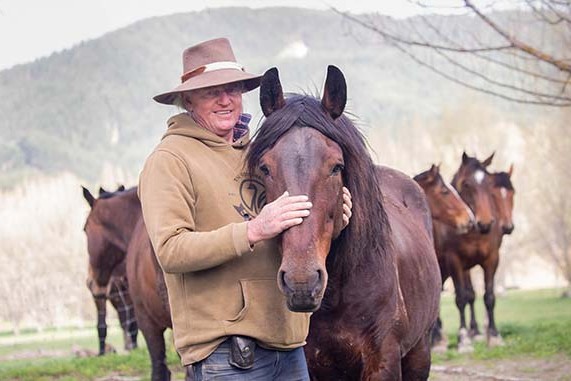For a farm working dog’s optimum performance, getting the right food is vitally important. Country-Wide writers present the annual dog tucker guide, with a review of data and manufacturers’ claims.
Rebecca Harper
Feeding is an important element of keeping your working dogs in top condition, but as founder of Retired Working Dogs New Zealand, Natalie Smith, tells us, animal husbandry is just as important.
A former vet nurse, Natalie lives on a farm near Pirinoa in south Wairarapa and is a North Island rural sales representative for Royal Canin and Eukanuba.
She shares with us her top tips for keeping your four-legged workmates happy and healthy.
FEEDING
At this time of year when work really comes on, look for a good quality working dog feed with a good amount of both fat and protein. Fat is important for energy, while protein helps repair the muscles after hard work, high protein diets are also thought to help reduce soft tissue injuries.
Most working dogs are also fed a component of homekill. Homekill alone won’t provide the balanced diet your dogs need, so ensure the biscuit component of their feed is a high quality one. Keep in mind that at different times of the year the quality of homekill meat will also vary and might not provide the same levels of energy.
Bones are contentious because of the health problems associated with dogs swallowing small, sharp pieces of bone, or constipation.
It seems to be common practice to freeze homekill meat, then defrost it before smashing it up and feeding it to dogs. A tip is to run meat through a bandsaw, which will ensure decent sized pieces of bone and minimise the risk of smaller, sharp bones.
“At this time of year when dogs are busy, they need more from their diet. Look at feeding a higher quality biscuit at this time. There are other associated benefits from such products, like joint support and anti-oxidants, which will help keep dogs healthy and fit.”
KENNELING
Having a warm, draught-free kennel is important. If a dog is working all day and then sits in a cold kennel shivering all night, it will lose weight. Warm dogs will hold their condition better and shouldn’t need to be fed as much, which could save you money. They are also less stiff in the mornings, more ready to work and less likely to injure themselves. Once ambient temperature in the kennel drops below 18-20C, dogs have to actively burn energy just to keep warm. This is energy that would otherwise go to immunity, muscle repair and body condition.
“When it’s cold, all of our working dogs wear a coat to bed – they’re not just for pets. You can really see the difference and now they actually wait to have their coats put on.”
As far as bedding goes, it can be hard to find something dogs won’t destroy. You need something that won’t soak up water and stay damp. Old canvas horse rugs are good, as are the hessian pads, provided you can air them out. Look for something that is waterproof.
The benefit of bedding, other than warmth, is it provides padding at the bottom of a hard kennel. This supports the dog’s joints and can potentially keep them working for longer, delaying arthritis or helping older dogs that have arthritis.
ANIMAL HUSBANDRY
Fleas: Fleas are a big issue and it can be expensive to treat a whole team. Prevention is better than cure – if your dogs are scratching then you’ve already got a problem. In the cooler months fleas are not as active and you may not need to treat dogs as often, but from spring onwards it is important to flea dogs.
“We use Seresto collars and I love them. They seem expensive, but they last eight months and it’s much cheaper than spot-treating dogs every month. We copper wire them to the dog’s collar so they can’t get hooked off.”
Fleas can affect a dog’s performance and body condition too. If you treat your dogs, you need to treat everything on your property, including pet dogs and cats.
Fleas also live in kennels and in the environment around kennels, so pick a warm day and ripcord kennels. Make sure you wait a while before putting dogs back in the kennels. Raised kennels will help combat fleas.
Worming: This is hugely important. Puppies need to be wormed every two weeks until 12 weeks old, then once monthly until six months. Adult dogs should be wormed three-monthly with Drontal, and a sheep measles treatment in between.
A good tip is to talk to your vet clinic and see if your dogs can go on a mailing list programme, that way worm treatments will be mailed to you regularly.
If you’re bringing a new dog on to the farm try to worm it two days prior to arrival. If that’s not possible, it will need to be wormed on arrival and then quarantined for 48 hours to eliminate the risk of sheep measles. Ensure anyone who brings a pet or hunting dog on to your property has also dosed their dogs.
Water: Access to fresh water in kennels is an obvious one, but also consider the needs of your dogs while they are out working, especially on a hot day.
“A 20kg dog will usually drink 1.2 litres of water a day. If it’s hot and the dog is working hard, that intake can increase to six litres a day. It’s something to think about if you’re out mustering and then dogs are tied to the fence in between times. Give them the opportunity to drink, or consider taking water with you. I know people worry about dogs drinking and then working, but heat stroke can be an issue in summer and it can kill a dog very quickly.”
Signs a dog may be suffering from heat stroke include excessive panting, extremely pale or bright red gums (gums are normally a nice pink), trying to crawl into shade or if they are very lethargic and don’t want to work. If a dog collapses, put it in a trough immediately and then take it to your vet.
Lameness: There are many reasons for lameness in working dogs, including sore pads, especially when the ground gets hard. Talk to your vet about options for pads and toughening them up. “Lameness doesn’t often heal itself. If you’ve rested the dog a few days and it’s still lame, it needs to see the vet.”
Joint support: This can be beneficial for older dogs and really make a difference to them. Have a chat to your vet about the options.
Vaccinations: If you vaccinate for nothing else, make sure you vaccinate all dogs for parvo. Even if your dogs never leave the farm, other dogs will come on to the farm from time to time and they could be carrying parvo. Once you have parvo on a property, it is very difficult to get rid of. Puppies should be vaccinated and then boosted yearly or three-yearly, depending on your vet clinic. “It’s a relatively cheap outlay that could save you massive amounts of money in the long run.”
PUPPIES
Puppies need special care to ensure they grow and reach their full potential. The biggest factor is good feeding, particularly for Huntaway puppies, and it is strongly recommended they be fed a specific large breed puppy diet product. Puppies grow for at least 18 months, so feeding them a puppy feed for as long as possible will give them the best start to life. Also, be aware they’re still growing and try not to work them too hard or run them behind the bike for long periods while they are young.
- Want to know more about Retired Working Dog Adoption NZ? Find them on Facebook https://www.facebook.com/Retired.WorkingDogs/ or email retired.workingdogs@gmail.com





